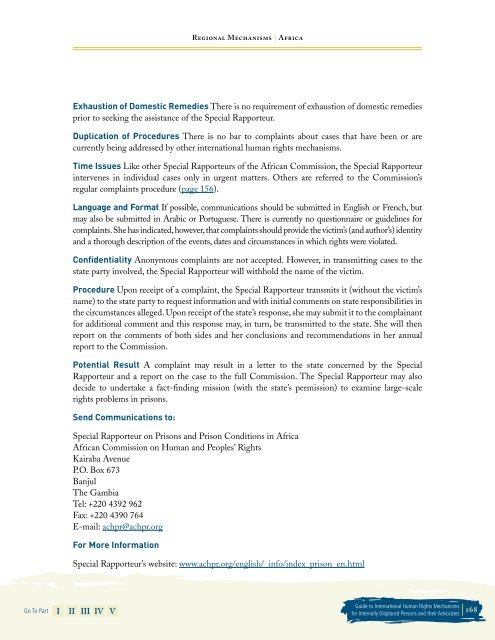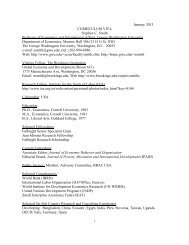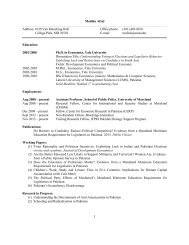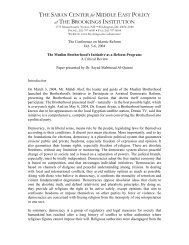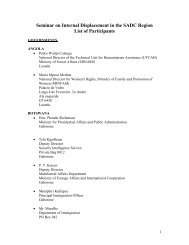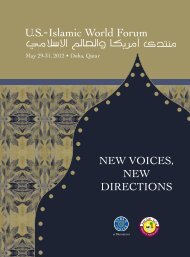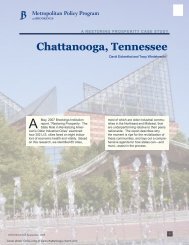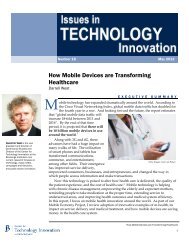Guide to International Human Rights Mechanisms - Brookings
Guide to International Human Rights Mechanisms - Brookings
Guide to International Human Rights Mechanisms - Brookings
Create successful ePaper yourself
Turn your PDF publications into a flip-book with our unique Google optimized e-Paper software.
Go To Part I II III IV V<br />
exhaustion of Domestic remedies There is no requirement of exhaustion of domestic remedies<br />
prior <strong>to</strong> seeking the assistance of the Special Rapporteur.<br />
Duplication of Procedures There is no bar <strong>to</strong> complaints about cases that have been or are<br />
currently being addressed by other international human rights mechanisms.<br />
Time issues Like other Special Rapporteurs of the African Commission, the Special Rapporteur<br />
intervenes in individual cases only in urgent matters. Others are referred <strong>to</strong> the Commission’s<br />
regular complaints procedure (page 156).<br />
language and format If possible, communications should be submitted in English or French, but<br />
may also be submitted in Arabic or Portuguese. There is currently no questionnaire or guidelines for<br />
complaints. She has indicated, however, that complaints should provide the victim’s (and author’s) identity<br />
and a thorough description of the events, dates and circumstances in which rights were violated.<br />
confidentiality Anonymous complaints are not accepted. However, in transmitting cases <strong>to</strong> the<br />
state party involved, the Special Rapporteur will withhold the name of the victim.<br />
Procedure Upon receipt of a complaint, the Special Rapporteur transmits it (without the victim’s<br />
name) <strong>to</strong> the state party <strong>to</strong> request information and with initial comments on state responsibilities in<br />
the circumstances alleged. Upon receipt of the state’s response, she may submit it <strong>to</strong> the complainant<br />
for additional comment and this response may, in turn, be transmitted <strong>to</strong> the state. She will then<br />
report on the comments of both sides and her conclusions and recommendations in her annual<br />
report <strong>to</strong> the Commission.<br />
Potential result A complaint may result in a letter <strong>to</strong> the state concerned by the Special<br />
Rapporteur and a report on the case <strong>to</strong> the full Commission. The Special Rapporteur may also<br />
decide <strong>to</strong> undertake a fact-finding mission (with the state’s permission) <strong>to</strong> examine large-scale<br />
rights problems in prisons.<br />
send communications <strong>to</strong>:<br />
Special Rapporteur on Prisons and Prison Conditions in Africa<br />
African Commission on <strong>Human</strong> and Peoples’ <strong>Rights</strong><br />
Kairaba Avenue<br />
P.O. Box 673<br />
Banjul<br />
The Gambia<br />
Tel: +220 4392 962<br />
Fax: +220 4390 764<br />
E-mail: achpr@achpr.org<br />
for more information<br />
Regional <strong>Mechanisms</strong> | Africa<br />
Special Rapporteur’s website: www.achpr.org/english/_info/index_prison_en.html<br />
<strong>Guide</strong> <strong>to</strong> <strong>International</strong> <strong>Human</strong> <strong>Rights</strong> <strong>Mechanisms</strong><br />
for Internally Displaced Persons and their Advocates 1 8


